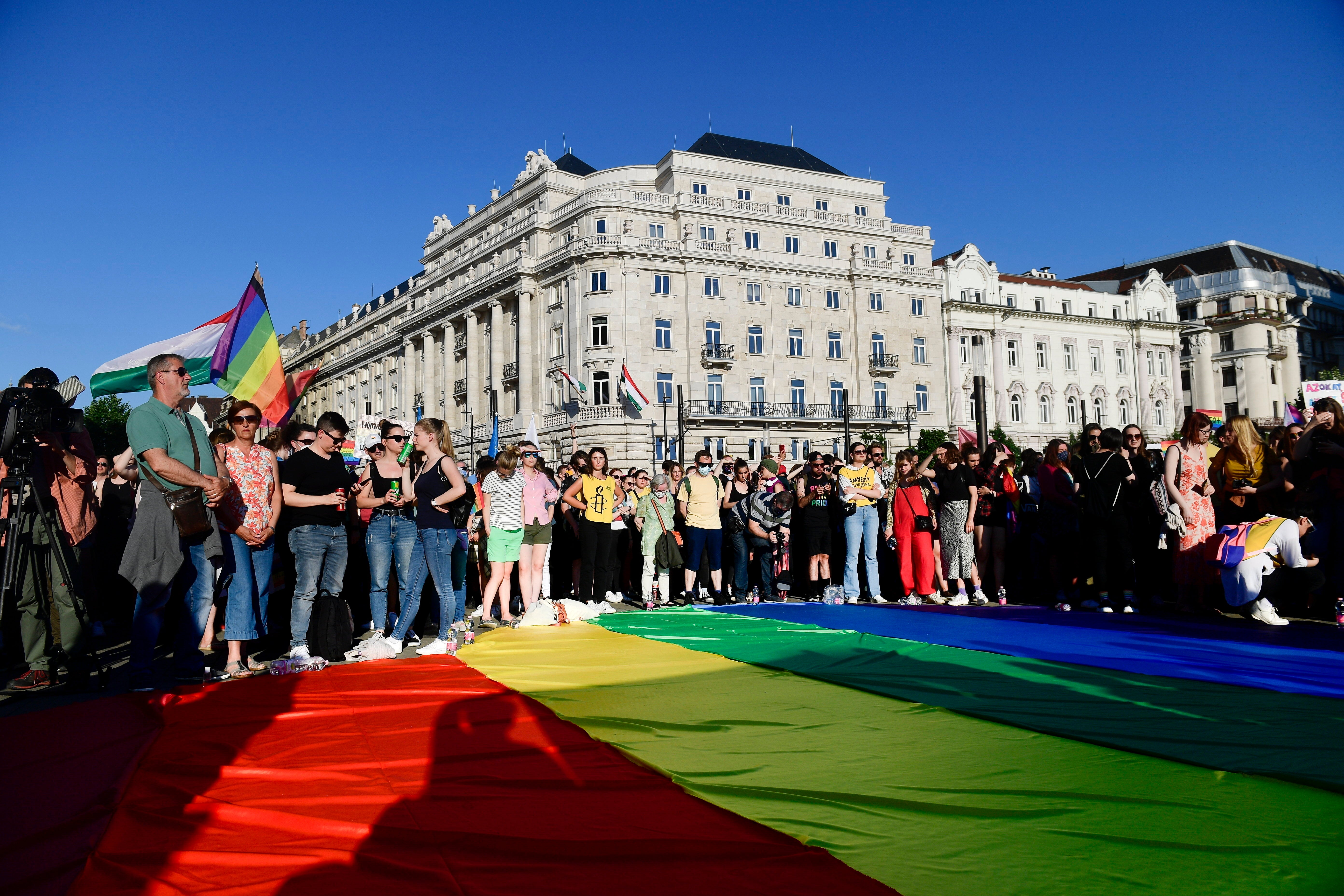Hungary: Lawmakers pass law barring LGBT content for minors
Hungarian lawmakers have passed legislation that prohibits sharing with minors any content that portrays or promotes homosexuality or sex reassignment

Your support helps us to tell the story
From reproductive rights to climate change to Big Tech, The Independent is on the ground when the story is developing. Whether it's investigating the financials of Elon Musk's pro-Trump PAC or producing our latest documentary, 'The A Word', which shines a light on the American women fighting for reproductive rights, we know how important it is to parse out the facts from the messaging.
At such a critical moment in US history, we need reporters on the ground. Your donation allows us to keep sending journalists to speak to both sides of the story.
The Independent is trusted by Americans across the entire political spectrum. And unlike many other quality news outlets, we choose not to lock Americans out of our reporting and analysis with paywalls. We believe quality journalism should be available to everyone, paid for by those who can afford it.
Your support makes all the difference.Lawmakers in Hungary passed legislation Tuesday that prohibits sharing with minors any content portraying homosexuality or sex reassignment, something supporters said would help fight pedophilia but which human rights groups denounced as anti-LGBT discrimination.
The conservative ruling party of Hungarian Prime Minister Viktor Orban introduced the legislation, which is the latest effort to curtail the rights of gay men, lesbians, bisexual and transgender people in the central European nation.
Hungary's National Assembly passed the bill on a 157-1 vote. The ruling Fidesz party has a parliamentary majority, and lawmakers from the right-wing Jobbik party also endorsed the measure. One independent lawmaker voted against it.
All other opposition parties boycotted the voting session in protest. Human rights groups had denounced the measure strongly, seeing it as a tool that could be used to stigmatize and harass residents because of their sexual orientations and gender identities.
Some human rights officials have compared it to the so-called gay “propaganda” law passed by Russia in 2013 which human rights officials say has become a tool to harass sexual minorities.
“On this shameful day, the opposition’s place is not in the parliament but on the streets,” Budapest Mayor Karacsony wrote on Facebook.
Lawmaker Gergely Arato, of the Democratic Coalition parliamentary grouping, said the changes violate the standards of parliamentary democracy, rule of law and human rights.
The legislation, presented last week by Fidesz, was on its face primarily aimed at fighting pedophilia. It included amendments that ban the representation of any sexual orientation besides heterosexual as well as sex reassignment information in school sex education programs, or in films and advertisements aimed at anyone under 18.
Thousands of LGBT activists and others held a protest in Budapest on Monday in an unsuccessful effort to stop the legislation from passing.
Dunja Mijatovic, the commissioner for human rights at the Council of Europe, the continent’s leading human rights body, also had asked Hungarian lawmakers to reject the legislation, saying it reinforced prejudice against LGBT people.
The Fidesz party also successfully championed a law making it impossible for transgender people to legally change the gender markers on their identity documents. Human rights officials say that puts them at risk of humiliation when they need to present identity documents.
“Today’s decision in #Hungary’s parliament represents another severe state discrimination against #LGBTIQ people,” Deputy Foreign Minister Michael Roth of Germany tweeted Tuesday after the new legislation passed. “This law goes against everything we regard as our common European values. Full solidarity and support for LGBTIQ people in Hungary.”